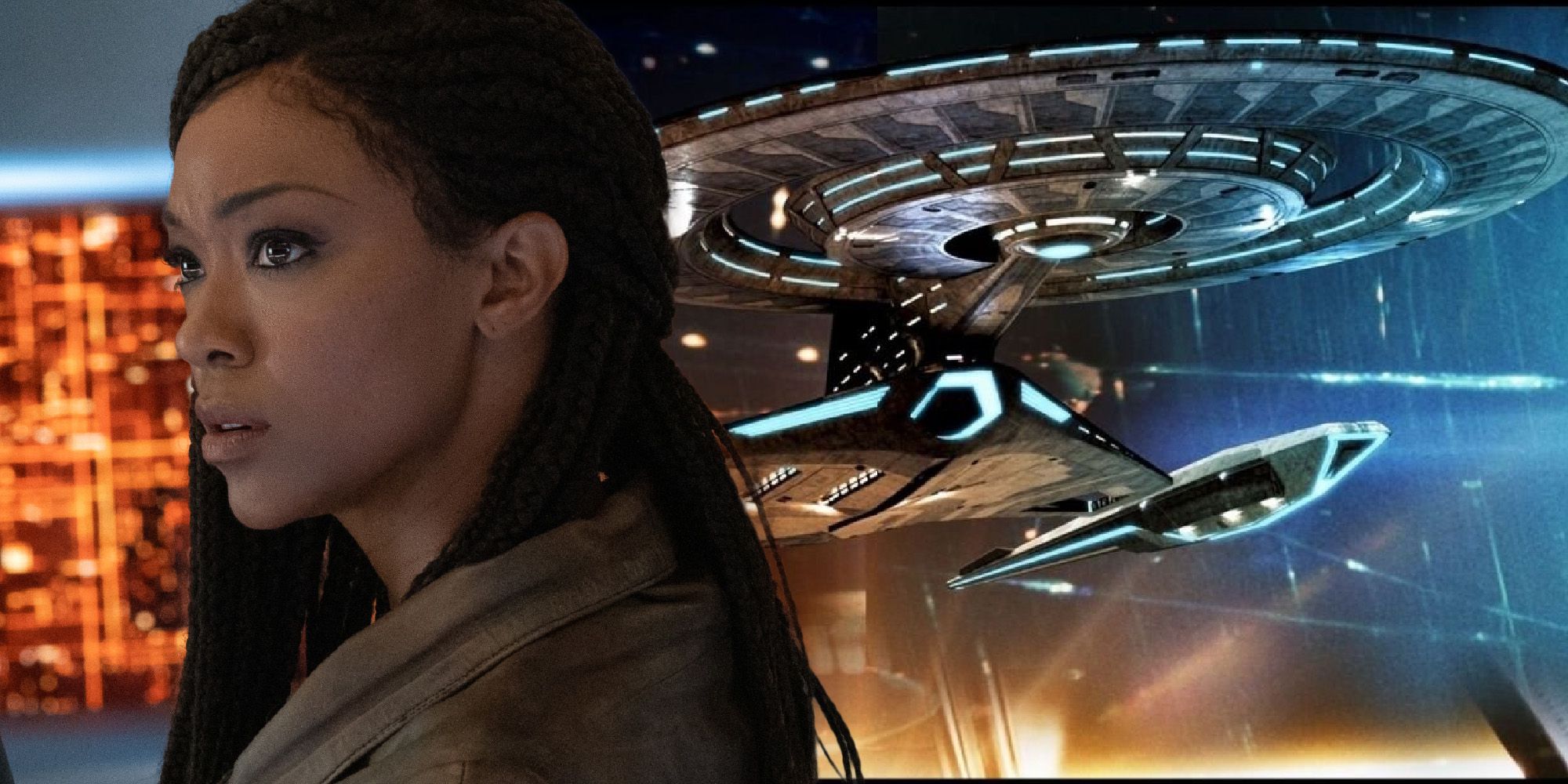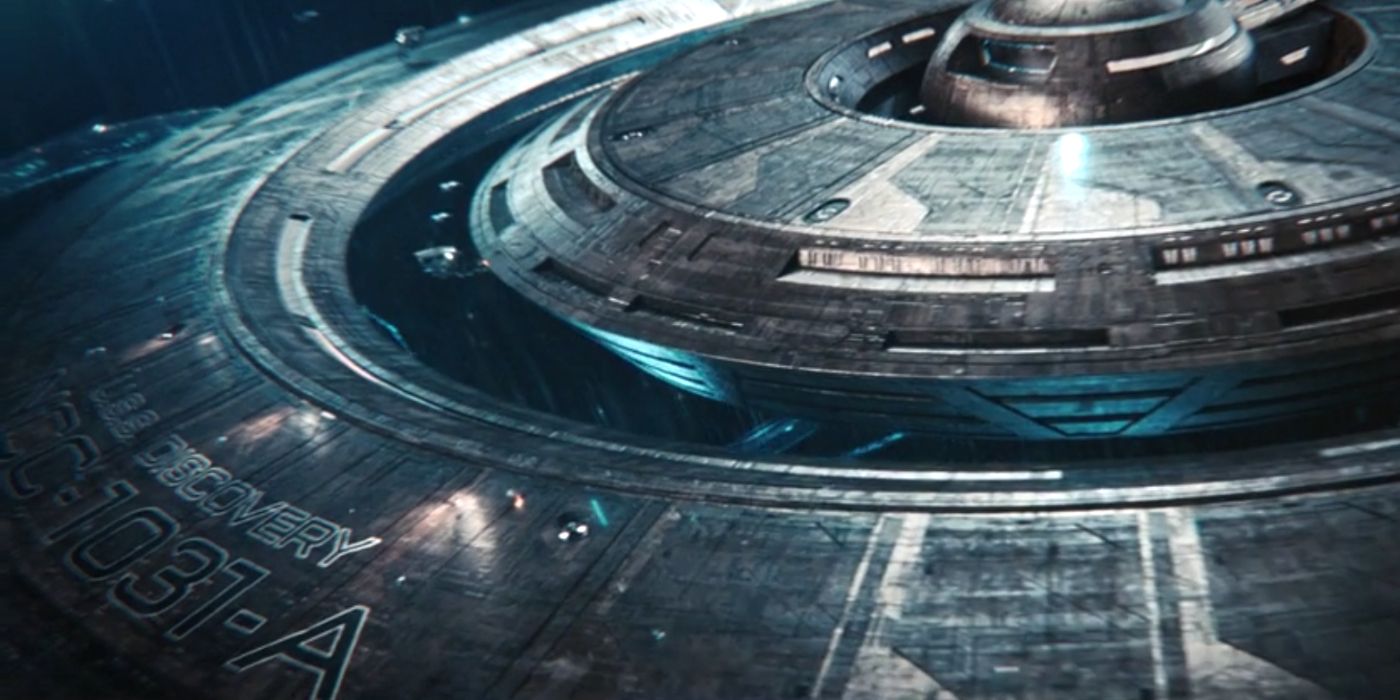The USS Discovery was retrofitted with 32nd-century technology in Star Trek: Discovery season 3, but these changes have caused problems that break the show's own canon. Under the command of Captain Saru (Doug Jones), Discovery located Starfleet and United Federation of Planets headquarters after arriving in the year 3189. The Crossfield-class starship then underwent a three-week refit and was recommissioned as NCC-1031-Alpha i.e. USS Discovery-A — but it shouldn't have been and this creates a canon plot hole.
Discovery was nearly a thousand years old in 3189 and it certainly needed the upgrades with advanced 32nd-century technology like programmable matter and detached nacelles in order to perform its new mission as Starfleet's rapid responder. But recommissioning the vessel as Discovery-A wasn't necessary because the starship only underwent a refit. In Star Trek: The Motion Picture, the USS Enterprise received a similar retrofit but, despite being virtually new inside-and-out, it wasn't recommissioned because it was the same vessel. Only later, after the Enterprise was destroyed in Star Trek III: The Search For Spock, did its identical replacement get renamed the Enterprise-A at the end of Star Trek IV: The Voyage Home. 32nd-century enhancements aside, Discovery appears to be the same starship it always was and shouldn't have been recommissioned with the Alpha designation.
A further inconsistency is when the USS Defiant was destroyed in Star Trek: Deep Space Nine season 7. Starfleet gave Captain Benjamin Sisko (Avery Brooks) an identical Defiant-class replacement: the USS Sao Paulo and, after he took command of the vessel, Sisko received a special dispensation that renamed the Sao Paulo as the USS Defiant. Yet, despite being a substitution for a lost ship, Sisko's new starship wasn't reclassified as the Defiant-A; it was simply the Defiant. Following those examples, Captain Saru's Discovery should have received the same treatment as Kirk's original Enterprise and Sisko's second Defiant and remained, simply, the USS Discovery. But, it's possible that given the stark reality of the galaxy after The Burn, Starfleet's procedures may have changed and, lacking plentiful replacement starships, it now recommissions existing, refitted vessels to be their own legacy ships.
A more pressing continuity break is what the Discovery-A means for the Short Trek "Calypso," which introduced Zora (voiced by Annabelle Wallis), Discovery's artificially intelligent computer. Released in 2018, "Calypso" is apparently set a thousand years after the events of Star Trek: Discovery season 3 at a time when its crew had long ago abandoned their vessel and cast the lonely ship adrift in deep space. However, the starship is clearly labeled as the USS Discovery (without the A) in the Short Trek, which chronologically happens long after its retrofit. There is also no sign of programmable matter or any of the Disco's 32nd-century enhancements aboard in "Calypso."
Of course, "Calypso" was produced in the lead-up to Star Trek: Discovery season 2 and, even if the show's producers knew that Commander Michael Burnham (Sonequa Martin-Green) and her starship would jump to the 32nd century at the end of the season, they likely hadn't decided on the specific details of what that would mean yet. It's also understandable if "Calypso" wasn't foremost on the writers' minds when they made the season 3 decisions to upgrade the Discovery and invented 32nd-century technology like programmable matter and detached nacelles.
And yet, Star Trek: Discovery season 3 made it a point to introduce Zora, which established "Calypso" as canon. Indeed, because the series laid the foundations for Zora's creation throughout season 2, the way season 3's changes deviate from what was seen in "Calypso" is now a canon-breaking issue. This leaves a couple of possible solutions as to why Discovery is not Discovery-A in "Calypso"; first, the Short Trek may actually not be canon and it could now be set in an alternate future. Another option is that somehow, Discovery-A is decommissioned back to simply being the Discovery at some point to come. While it's safe to assume that the eponymous starship will remain the Discovery-A for the foreseeable future but it remains to be seen if Star Trek: Discovery season 3 will address the canonical problem it created in regards to Zora's Short Trek.
Star Trek: Discovery season 3 streams Thursdays on CBS All-Access and Fridays internationally on Netflix.


